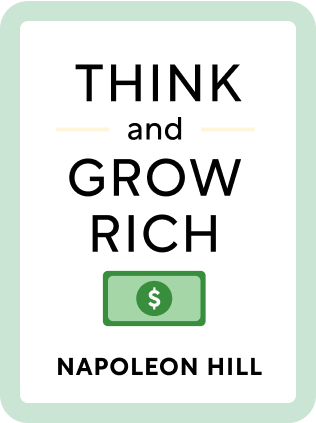

This article is an excerpt from the Shortform book guide to "Think and Grow Rich" by Napoleon Hill. Shortform has the world's best summaries and analyses of books you should be reading.
Like this article? Sign up for a free trial here .
Why should you dream big dreams? How can you make your dreams a reality?
Those who become astonishingly successful are typically people who dream big dreams and act on them. However, you must plan effectively before your dreams can become reality. Successful dreamers like Henry Ford and the Wright brothers had actionable plans that helped bring their dreams to life.
Read on to fully understand why successful people are usually those who dream big dreams.
Why You Should Dream Big Dreams
People who are driven by a strong desire and definite purpose typically are dreamers. They dream big dreams and pursue them relentlessly, without fear of failure or opposition. They know that each failure is a stepping stone to success.
Marconi, an Italian inventor and physicist, was intrigued by the recent discovery of electromagnetic waves, and dreamed of putting them to use. His work in long-distance radio transmission in the early 1900s enabled the transmission of news, information and entertainment around the world. Radio, TV and cell phones ultimately grew out of his work. (His success, however, didn’t come without opposition: His friends had him examined in a psychiatric hospital when he announced he could send messages through the air without wires.)
Similarly, Henry Ford also dreamed big, even though he was poor and lacked a formal education. He envisioned the automobile and went to work on it with the tools he had at hand. Vehicles now are an integral part of life on earth because Ford went after his dream.
Other examples of dreamers who acted on big dreams and changed the world in the process include Copernicus, Thomas Edison, Abraham Lincoln, and the Wright brothers.
Planning Makes Your Dreams Actionable
It’s often said that knowledge is power, but actually, knowledge is only potential power. Knowledge only becomes actual power if it can be put to use as part of an organized plan.
If your first plan doesn’t work, replace it with a new one. In fact, keep replacing failed plans until you come up with one that works.
Many people who fail do so because they lack the persistence to keep working to come up with a better plan when an earlier one fails. They don’t understand that defeat is temporary, and only means there was something wrong with your plan, which can be fixed if you keep trying until you get it right. Thomas Edison met with temporary defeat 10,000 times before inventing a successful lightbulb.
Don’t be a quitter who gives up before you achieve your goal. Also, be sure to select as members for your Master Mind group people who will not be stymied by defeat.
Important note: Ideas must be nursed from birth, if they are to survive and succeed. When you have an idea, you must activate it with a definite plan and immediate action.

———End of Preview———
Like what you just read? Read the rest of the world's best book summary and analysis of Napoleon Hill's "Think and Grow Rich" at Shortform .
Here's what you'll find in our full Think and Grow Rich summary :
- Napoleon Hill's 1937 guide to success
- How to use thoughts, visualization, and affirmation to achieve wealth
- The importance of a Master Mind group and how to start one





